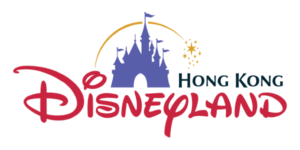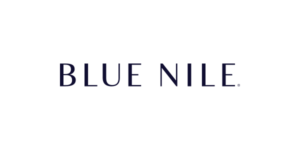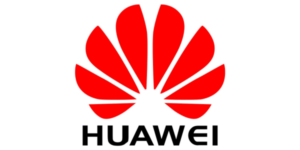JACQUELINE CHAN
JACQUELINE CHAN
Jacqueline is Project Director at Alarice and ChoZan. She has hands-on experience in account management for big multinational brands from the FMCG, luxury and hospitality sector. She knows how to develop and execute in-depth digital marketing strategies on the most popular Chinese social media platforms, like WeChat and Weibo, and run creative campaigns on platforms such as Douyin, RED, Zhihu and more.
As a senior digital marketing trainer at ChoZan, Jacqueline runs comprehensive Chinese social media training programs for Chinese and international teams with a focus on marketing and best practices. Jacqueline has helped clients to train their in-house marketing team and has worked with various chambers of commerce to educate their members about current digital trends in China. She’s also been instrumental in preparing materials for ongoing training with high profile clients such as Huawei.
Jacqueline also has unique experience in leading consultations on modern Chinese consumer engagement and purchasing behavior. Jacqueline presents in Mandarin Chinese, Cantonese, and English.
Jacqueline’s favourite quotes: “Inspiration is the most important part of our digital strategy.”; “Finding the right way is more important than running fast.” ( “找准赛道,比跑得快重要。”)

AREAS OF EXPERTISE
- China Digital Marketing Strategy Planning
- Creative Planning (Campaigns and SMM Content)
- China Trend Watching
- FMGC, luxury, hospitality, maternity and infant care
- Chinese outbound tourism
- The WeChat and Weibo ecosystems
- Livestreaming marketing and sales in China
- Chinese KOLs and advertising campaigns
- Effective CRM systems in China
INDUSTRIES




WHAT DO PEOPLE SAY
HIRE JACQUELINE TO TRAIN YOUR TEAM
FAQ
The Chinese government has launched a series of regulations among various industries. In face, in May of this year, the National Cyberspace Administration of China deployed a series of special actions for the 2021 “Clearness” Scheme which includes the rectification of online entertainment and celebrity rankings chaos.The artists involved in controversial issues such as tax evasion and sexual assault, have been blacklisted by the industry in varying degrees. Dozens of mainland entertainers took part in an “ethical training session” hosted by the National Radio and Television Administration (NRTA) in July.
Television companies and internet platforms were told to “strictly regulate the selection of program actors and guests, and uphold political literacy, moral conduct, artistic level and social evaluation as selection standards” by the NRTA. By now, Weibo had already suspended or banned at least 145 fan accounts of Chinese celebrities. Popular Chinese actor, Zhao Liying even had her personal account suspended because her fans often incited online feuds. Her fan club accounts, which had over 2 million followers, were also suspended. While the strengthened regulations applied equally among Chinese celebrities, they’re actually getting hit harder.
The year of 2022 will be even more challenging for brands to work with celebrities in the China market, so I suggest brands who want to continuously succeed in the China market to make sure to conduct celebrity risk assessments before working with them.
With the development of 6G, virtual personalities, holographic shows, AI virtual assistants and other new technologies, the Chinese market will show more vitality and consumers’ shopping experience will be greatly improved. Brands also need to learn and adjust their marketing strategy. Digitalization has been accelerated, and consumer-centered platforms such as e-commerce platforms have become digital infrastructures.
Retail formats will continue to innovate, but retail infrastructure will become more professional and social, and the retail industry will become an open and sharing ecosystem.
3 Things are Reshaping China’s New Business Model: live-streaming, group buying, and private traffic.
The year of 2022 will be even more challenging for brands to work with celebrities in the China market, so I suggest brands who want to continuously succeed in the China market to make sure to conduct celebrity risk assessments before working with them.
How brands in China utilizes online-merge-offline (OMO), to create a closed-loop unify marketing and sale system from generating interest to purchase, from perception to experience, from online to offline, is what excites me. As we know, online and offline together is not a scenario of mutual exclusivity but rather an interdependent means for achieving success and for connecting them in a way that would enhance the customer’s overall experience. The aim of OMO is to go beyond omni-channel and move towards an omni-platform. OMO will be a consumer-centred omnichannel retail in the future, with fragmented consumption entrances. New retail will also be able to flexibly meet personalized immediate needs. The shopping boundary is moving sideways, enabling the “consumption everywhere” concept.
In saying that, the further development of OMO in the China market provides unlimited potential and space for brands to win.
- Brand audit (for both social media and e-commerce side)
- Influencer strategy
- Brand marketing strategy (how to plan it)
- Creative social media campaigns
- Social media platforms: WeChat, RED, Weibo
The success of Chinese domestic brands. I was very impressed by the product positioning, marketing strategies, sales channels, etc., of Chinese local brands. Relying on the understanding of the market and consumers, these emerging domestic brands responded quickly and found their own way on the track full of international giants. From their successful cases, I have seen changes in consumers, insight into the infinite possibilities of marketing, and also noticed diverse methods from sales channels.
I am originally from mainland China so I fully understand the Chinese culture and audience. I have 4 years of China marketing experience and 2 years of experience in the training role. Both of which involved working with international clients of different sizes and across different industries. I have offered training for many big brands‘ internal marketing teams, such as Disneyland, Hanglung properties, and helped one of my clients, the biggest American whiskey brand, to provide training for their e-commerce agency. I can deliver insights from both a high-level point of view and a more practical perspective.
The training curriculum is customized based on your learning outcomes and your existing knowledge of a particular topic. I will first understand your pain points and expected outcomes for the training, then customize a training curriculum for your team based on your specific situation. You can expect the training to consist of a general topic and tailor-made strategies for your team and company.
Each training includes a 15-minute Q&A session in which you and your team can ask me questions related to the topic of the training as well as the content delivered. You can also send me the list of questions via email after the training in case you need more time to prepare your questions. Even after the training ends, we can always set up another consultation call if you and your team run into questions during execution.
Before the training begins, I will send you a digital form to inquire about the details of the training and the learning needs that you and your team are looking for. The basic information which I need includes your company background, your team’s profile, your previous experience with China digital marketing, the topics of your interest, and most importantly, the pain points and the outcomes that you’re looking for.
SEE JACQUELINE IN ACTION
How to Do Marketing on Weibo in 2020
How to Do Marketing on WeChat in 2020





